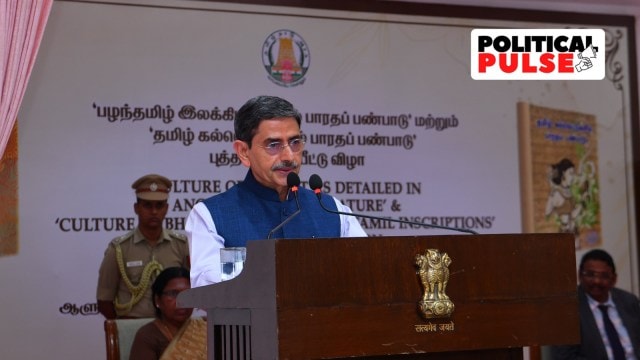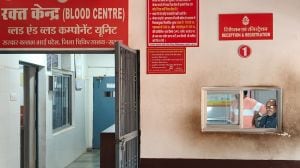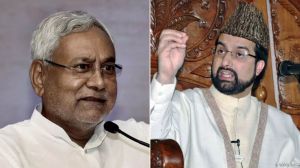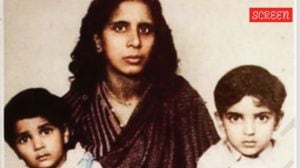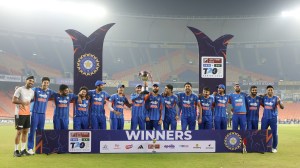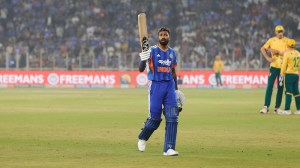
In January 2023, for example, Ravi suggested that the word ‘Tamizhagam’ was the “appropriate” name for Tamil Nadu, adding that “Nadu” gives the impression of talking about a separate “country”.
In Tamil Nadu, where regional pride overrides most other sentiments, the remarks drew a rebuff from not just the DMK, but also the AIADMK, the principal Opposition party in the state. Ravi eventually backtracked and issued a clarification, but only after a clash with the state government and an episode that saw him walk out of the Assembly.
Ravi then went on to argue that the Governor’s powers to withhold a Bill essentially meant its rejection. Again the DMK and AIADMK, apart from other parties, in one voice condemned the Governor’s interpretation of his powers, calling it contrary to “the spirit of cooperative federalism”. Subsequently, spotlight was drawn to the multiple Bills passed by the state Assembly that were held up with Ravi.
Ultimately, the Stalin government moved an unprecedented resolution against the Governor, accusing him of undermining the supremacy of the Legislature. The CM also appealed to all non-BJP states facing a similar situation with their Governors to pass such resolutions in the Assembly.
In June 2023, Ravi stated at an event that state identities in India were the result of “administrative convenience”, rather than “cultural preservation”. He also called these identities as “fictional” and “divisive”, again touching a raw nerve when it came to Tamil pride.
Story continues below this ad
The DMK accusations regarding Ravi’s perceived overreach and his “political leanings” came to a head the same month when the Governor ordered the dismissal of V Senthil Balaji, who was arrested by the ED in an alleged jobs scam, as a minister. The Stalin government pointed out that appointing or removing a minister was the prerogative of the CM.
Within a few hours, the Raj Bhavan said it was keeping the order in abeyance, pending legal advice.
In January 2024, while turning down a plea challenging the continuance of Balaji as minister in the state, a Supreme Court Bench of Justices A S Oka and Ujjal Bhuyan said: “Prima facie… the Governor could not have dismissed the minister. The Governor has to act on the recommendation of the Council of Ministers.”
By then, the DMK government had approached the Supreme Court over Governor Ravi not clearing Bills passed by it. In its observations, the Court questioned the delay, with some pending Bills as old as January 2020. “Why should the Governor wait for parties to approach the Supreme Court? What was the Governor doing for three years?” a Bench comprising Chief Justice of India D Y Chandrachud and Justice J B Pardi said.
Story continues below this ad
In April 2023, Ravi addressing civil services-aspirants as part of a programme at Raj Bhavan said that if a governor withholds a bill adopted by the state Assembly, it means the legislation is dead. “It (‘withhold’) is a decent language used, instead of the word ‘reject’. When you say ‘withhold’, the bill is dead,” he said.
In case of Ponmudi, he was disqualified as a minister following a Madras High Court order reversing his acquittal in a disproportionate assets case. However, on March 13, a two-judge Supreme Court bench stayed the High Court order, which effectively meant that Ponmudy’s conviction was suspended pending a final decision. The Stalin government then sought to reinstate Ponmudy, only to run into the Ravi wall.
On Thursday, Chief Justice of India D Y Chandrachud, presiding over a three-judge bench that heard DMK’s appeal against Ravi’s move blocking Ponmudy’s reinstatement, said: “We are seriously concerned about the conduct of the Governor in this case… This is not the way. Because he is defying the Supreme Court of India. When a two-judge bench of the Supreme Court stays a conviction, the Governor has no business to tell us that this does not wipe out the conviction and it is non-existent. Those who have advised him have not advised him correctly in accordance with law. The governor better be informed that when the Supreme Court of India stays a conviction, the law has to follow its course.”

